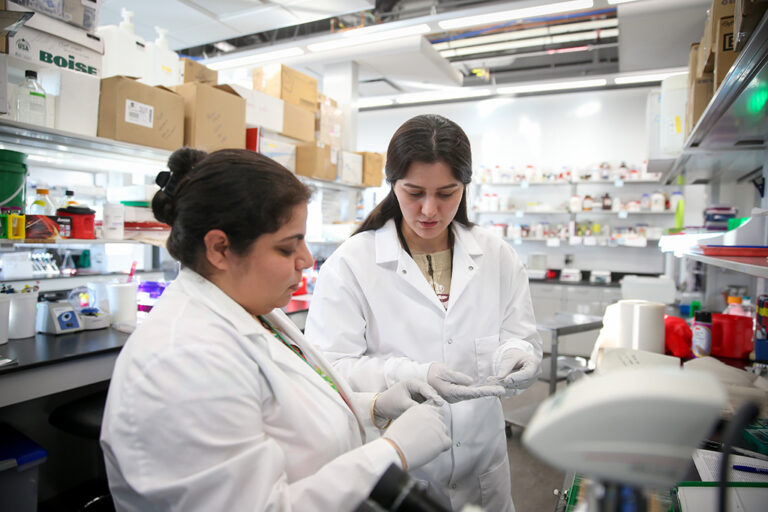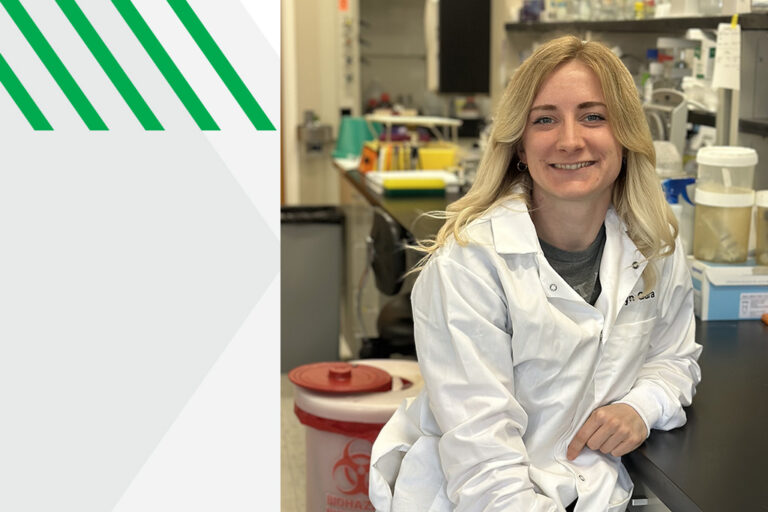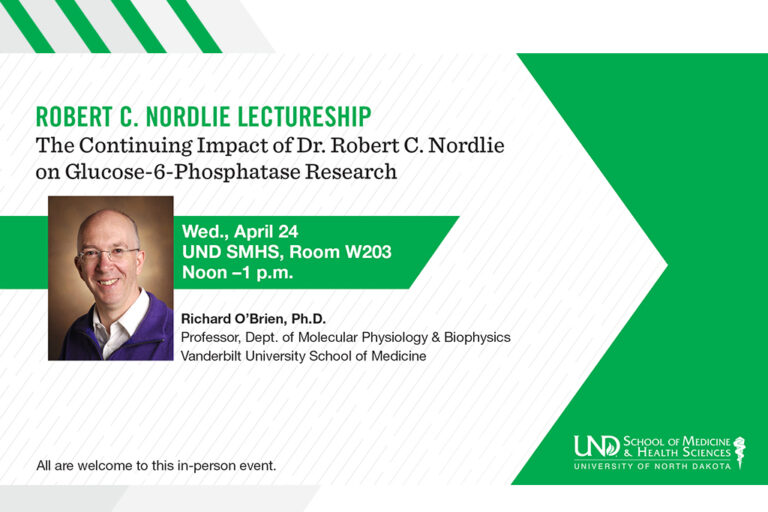Nechaev lab publishes manuscript in Nature Communications
The laboratory of Sergei Nechaev, Ph.D., associate professor with the Department of Biomedical Sciences at the University of North Dakota School of Medicine & Health Sciences, has published a paper in the prestigious Nature Communications journal. The manuscript, “Transcriptional Responses of Cancer Cells to Heat Shock-Inducing Stimuli Involve Amplification of Robust HSF1 Binding,” can be read online here.
According to Dr. Nechaev, our environment is well known to affect the odds of developing diseases including cancer. However, the ways in which chemical stresses and toxins affect us remain poorly understood. To better understand the relation between stress, toxins, and disease, Dr. Nechaev and one of his former doctoral students, Sayantani Ghosh Dastidar, Ph.D., set out to compare how cancer cells respond to stimuli at the molecular level.
The team chose to examine the activation of the Heat Shock Response signaling pathway, an important hallmark of aging and cancer. By performing deep-dive comparisons of gene expression in different cancer cell types responding to distinct stimuli, the researchers found that the transcription factor protein called Heat Shock Factor 1 (HSF1) shapes gene expression in a cell type-specific manner. The work found that HSF1 changes not only genes, which was previously known, but also alters remote regions of the human genome, potentially predisposing these previously inactive regions for epigenetic reprogramming.
“This work should help scientists learn how short-term exposures to chemical stresses cause long term changes in our epigenome,” said Nechaev, “to ultimately gain a better grasp at predicting how drug treatments would affect different cancers based on their molecular signatures.”
In addition to Drs. Nechaev and Dastidar, all of this publication’s eight additional authors claim a current or former affiliation with the Department of Biomedical Sciences at UND, including Bony De Kumar, Bo Lackner, Damien Parrello, Danielle Perley, Maria Vlasenok, Antariksh Tyagi, Nii Koney-Kwaku Koney, and Ata Abbas.



